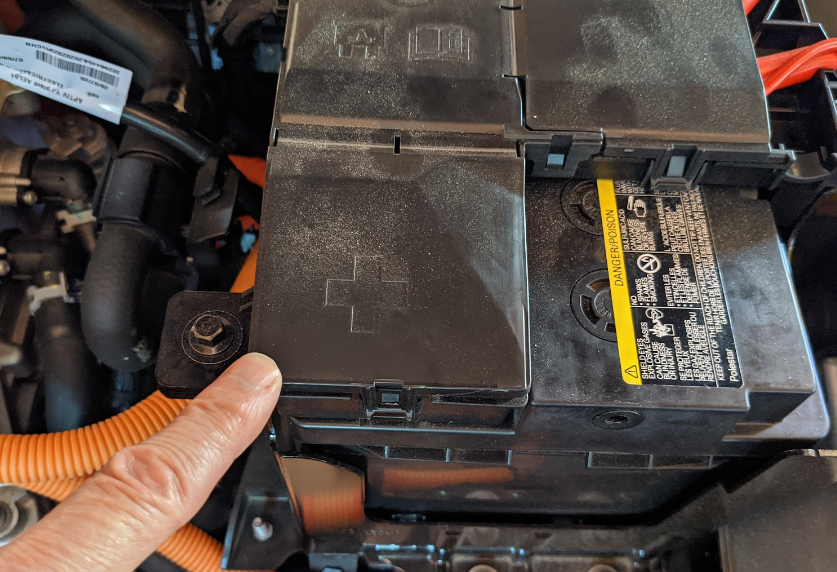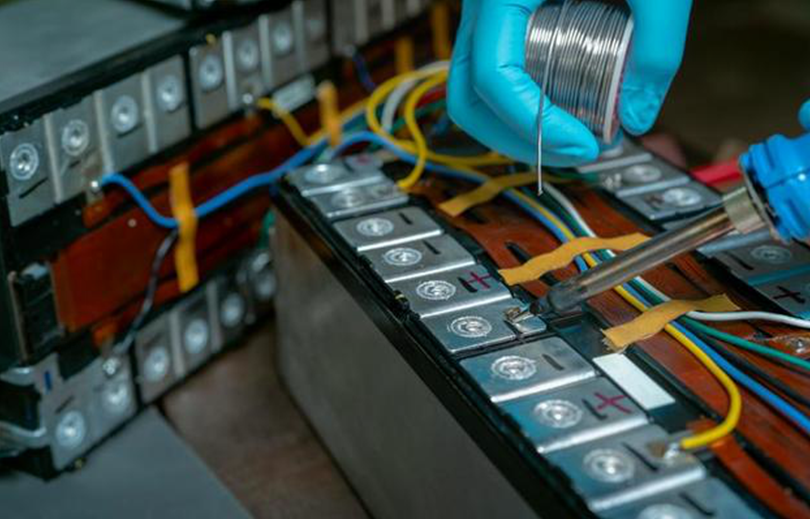Литий-железо-фосфатный аккумулятор: будущее устойчивого хранения энергии
As our world becomes more and more dependent on technology, the need for sustainable and efficient energy storage solutions continues to grow. One promising solution is the Lithium Iron Phosphate (LiFePO4) battery pack, which offers many benefits over traditional lead-acid batteries as well as other lithium-ion battery chemistries.
LiFePO4 batteries are a type of lithium-ion battery that use iron phosphate as the cathode material. Compared to lead-acid batteries, LiFePO4 batteries have a higher energy density, longer cycle life, and faster recharge times. They are also safer and more environmentally friendly since they do not contain toxic lead or acid.
One of the primary advantages of LiFePO4 batteries is their high energy density. This means they can store more energy in a smaller space, making them ideal for applications where space is limited, such as in electric vehicles. They also have a longer cycle life than lead-acid batteries, meaning they can be charged and discharged many more times without significantly degrading their performance. This makes them a cost-effective solution in the long run, as they require less frequent replacement.
Another benefit of LiFePO4 batteries is their ability to charge quickly. Traditional lead-acid batteries can take a long time to charge, especially if they are deeply discharged. LiFePO4 batteries, on the other hand, can be charged much faster, reducing downtime and increasing productivity. They also have a lower self-discharge rate, meaning they can hold their charge for longer periods of time without needing to be recharged.
LiFePO4 batteries are also much safer than traditional lead-acid batteries. Lead-acid batteries can produce hydrogen gas during charging, which can be dangerous if not properly ventilated. LiFePO4 batteries do not produce hydrogen gas, making them much safer to use. They are also less likely to overheat or catch fire, reducing the risk of accidents and injury.

Finally, LiFePO4 batteries are more environmentally friendly than lead-acid batteries. Lead-acid batteries contain toxic lead and acid, which can harm the environment if not properly disposed of. LiFePO4 batteries do not contain toxic materials and can be recycled at the end of their useful life, reducing their impact on the environment.
In conclusion, the Lithium Iron Phosphate (LiFePO4) battery pack is a promising solution for sustainable and efficient energy storage. They offer many benefits over traditional lead-acid batteries, including higher energy density, longer cycle life, faster recharge times, safety, and environmental friendliness. As our world continues to rely on technology, LiFePO4 batteries will likely become an increasingly important part of our energy storage infrastructure.
-
 В современном мире электроснабжение является неотъемлемой частью нашей жизни. Используем ли мы электронные устройства дома, в офисе или работаем в отдаленных районах, нам нужен надежный источник питания, который может обеспечить длительную поддержку. Именно здесь в игру вступает батарея LiFePO4. Это высокоэффективный и надежный аккумулятор, который может...Читать далее
В современном мире электроснабжение является неотъемлемой частью нашей жизни. Используем ли мы электронные устройства дома, в офисе или работаем в отдаленных районах, нам нужен надежный источник питания, который может обеспечить длительную поддержку. Именно здесь в игру вступает батарея LiFePO4. Это высокоэффективный и надежный аккумулятор, который может...Читать далее -
 Want to go out without power and have more fun? lifepo4 48v battery is here to help! This small battery has a long battery life. Whether it is an electric vehicle, a camper or an outdoor device, it can provide stable power supply, allowing you to explore smoothly. lifepo4 48V battery, the super energy king Speaking of Lifepo4...Читать далее
Want to go out without power and have more fun? lifepo4 48v battery is here to help! This small battery has a long battery life. Whether it is an electric vehicle, a camper or an outdoor device, it can provide stable power supply, allowing you to explore smoothly. lifepo4 48V battery, the super energy king Speaking of Lifepo4...Читать далее -
 Locomotive starter batteries play a crucial role in the operation of trains. These batteries are responsible for providing the initial power necessary to start the locomotive's engine. Without a reliable starter battery, trains would not be able to move efficiently and effectively. In this article, we will discuss the importance of locomotive starter batteries, how they work, and the various...Читать далее
Locomotive starter batteries play a crucial role in the operation of trains. These batteries are responsible for providing the initial power necessary to start the locomotive's engine. Without a reliable starter battery, trains would not be able to move efficiently and effectively. In this article, we will discuss the importance of locomotive starter batteries, how they work, and the various...Читать далее -
 В современном быстро меняющемся мире надежные и долговечные источники питания необходимы для различных приложений, от портативной электроники до систем возобновляемой энергии. Литиевая батарея высокой емкости 12 В, 100 Ач — это передовое решение, обеспечивающее эффективное и длительное питание для широкого спектра потребностей. С развитием технологий литиевые батареи становятся все более популярными благодаря своим превосходным характеристикам.Читать далее
В современном быстро меняющемся мире надежные и долговечные источники питания необходимы для различных приложений, от портативной электроники до систем возобновляемой энергии. Литиевая батарея высокой емкости 12 В, 100 Ач — это передовое решение, обеспечивающее эффективное и длительное питание для широкого спектра потребностей. С развитием технологий литиевые батареи становятся все более популярными благодаря своим превосходным характеристикам.Читать далее -
 High-capacity 12V 200Ah LiFePO4 Lithium Battery: Unleashing the Power of Long-lasting Energy StorageIntroduction: In recent years, the demand for high-capacity energy storage solutions has been on the rise due to the increasing need for reliable and sustainable power sources. Amongst the various options available, the 12V 200Ah LiFePO4 lithium battery has emerged as a frontrunner in the field of long-lasting energy storage. This article explores the features, benefits, and potential applications of...Читать далее
High-capacity 12V 200Ah LiFePO4 Lithium Battery: Unleashing the Power of Long-lasting Energy StorageIntroduction: In recent years, the demand for high-capacity energy storage solutions has been on the rise due to the increasing need for reliable and sustainable power sources. Amongst the various options available, the 12V 200Ah LiFePO4 lithium battery has emerged as a frontrunner in the field of long-lasting energy storage. This article explores the features, benefits, and potential applications of...Читать далее -
 В течение многих лет свинцово-кислотные аккумуляторы были лучшим решением для хранения энергии из-за их доступности и доступности. Однако по мере развития технологий литий-ионные аккумуляторы, такие как Lithium Battery Lifepo4 емкостью 100 Ач, производят революцию на рынке хранения энергии. Литиевая батарея Lifepo4 емкостью 100 Ач — это тип литий-ионной батареи, которая обычно используется для хранения энергии в жилых и...Читать далее
В течение многих лет свинцово-кислотные аккумуляторы были лучшим решением для хранения энергии из-за их доступности и доступности. Однако по мере развития технологий литий-ионные аккумуляторы, такие как Lithium Battery Lifepo4 емкостью 100 Ач, производят революцию на рынке хранения энергии. Литиевая батарея Lifepo4 емкостью 100 Ач — это тип литий-ионной батареи, которая обычно используется для хранения энергии в жилых и...Читать далее -
 Проворачивающая батарея: незаменимый источник энергии для вашей лодки Любители судоходства понимают важность наличия надежного источника энергии для своих лодок. Одним из важнейших компонентов, обеспечивающих плавную и эффективную работу, является пусковой аккумулятор. Этот незаменимый источник энергии разработан специально для запуска двигателя лодки и питания различных электрических систем. Пусковая батарея, также известная как...Читать далее
Проворачивающая батарея: незаменимый источник энергии для вашей лодки Любители судоходства понимают важность наличия надежного источника энергии для своих лодок. Одним из важнейших компонентов, обеспечивающих плавную и эффективную работу, является пусковой аккумулятор. Этот незаменимый источник энергии разработан специально для запуска двигателя лодки и питания различных электрических систем. Пусковая батарея, также известная как...Читать далее

